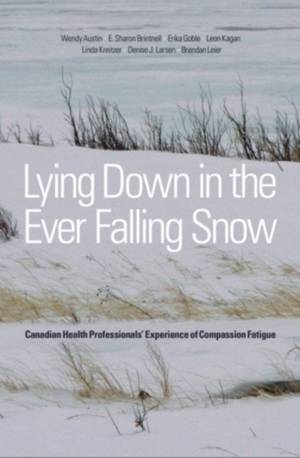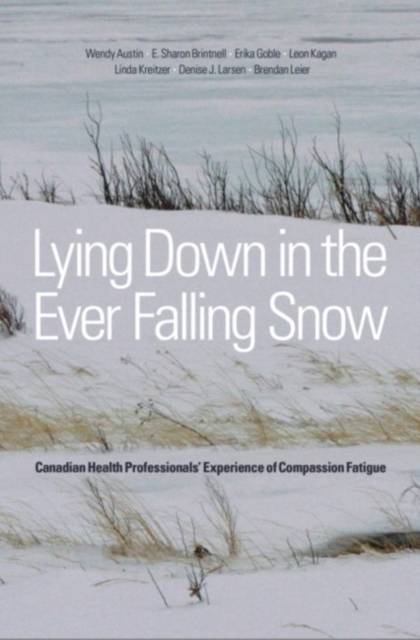
Je cadeautjes zeker op tijd in huis hebben voor de feestdagen? Kom langs in onze winkels en vind het perfecte geschenk!
- Afhalen na 1 uur in een winkel met voorraad
- Gratis thuislevering in België vanaf € 30
- Ruim aanbod met 7 miljoen producten
Je cadeautjes zeker op tijd in huis hebben voor de feestdagen? Kom langs in onze winkels en vind het perfecte geschenk!
- Afhalen na 1 uur in een winkel met voorraad
- Gratis thuislevering in België vanaf € 30
- Ruim aanbod met 7 miljoen producten
Zoeken
Lying Down in the Ever-Falling Snow
Canadian Health Professionalsa Experience of Compassion Fatigue
Wendy Austin, E Sharon Brintnell, Erika Goble, Frcp(c), Linda Kreitzer, Psych, Brendan Leier
Paperback | Engels
€ 43,45
+ 86 punten
Omschrijving
Compassion fatigue from the perspective of insiders in caregiving roles
First used to describe the weariness the public felt toward media portrayals of societal crises, the term compassion fatigue has been taken up by health professionals to name--along with burnout, vicarious traumatization, compassion stress, and secondary traumatic stress--the condition of caregivers who become "too tired to care." Compassion, long seen as the foundation of ethical caring, is increasingly understood as a threat to the well-being of those who offer it. Through the lens of hermeneutic phenomenology, the authors present an insider's perspective on compassion fatigue, its effects on the body, on the experience of time and space, and on personal and professional relationships. Accounts of health professionals, alongside examinations of poetry, images, movies, and literature, are used to explore the notions of compassion, hope, and hopelessness as they inform the meaning of caring work. The authors frame their exposé of compassion fatigue with the very Canadian metaphor of "lying down in the snow." If suffering is imagined as ever-falling snow, then the need for training and resources for safe journeying in "winter country" becomes apparent. Recognizing the phenomenon of compassion fatigue reveals the role that health services education and the moral habitability of our healthcare environments play in supporting professionals' ability to act compassionately and to endure.Specificaties
Betrokkenen
- Auteur(s):
- Uitgeverij:
Inhoud
- Aantal bladzijden:
- 230
- Taal:
- Engels
Eigenschappen
- Productcode (EAN):
- 9781554588886
- Verschijningsdatum:
- 23/04/2013
- Uitvoering:
- Paperback
- Formaat:
- Trade paperback (VS)
- Afmetingen:
- 152 mm x 226 mm
- Gewicht:
- 340 g

Alleen bij Standaard Boekhandel
+ 86 punten op je klantenkaart van Standaard Boekhandel
Beoordelingen
We publiceren alleen reviews die voldoen aan de voorwaarden voor reviews. Bekijk onze voorwaarden voor reviews.









